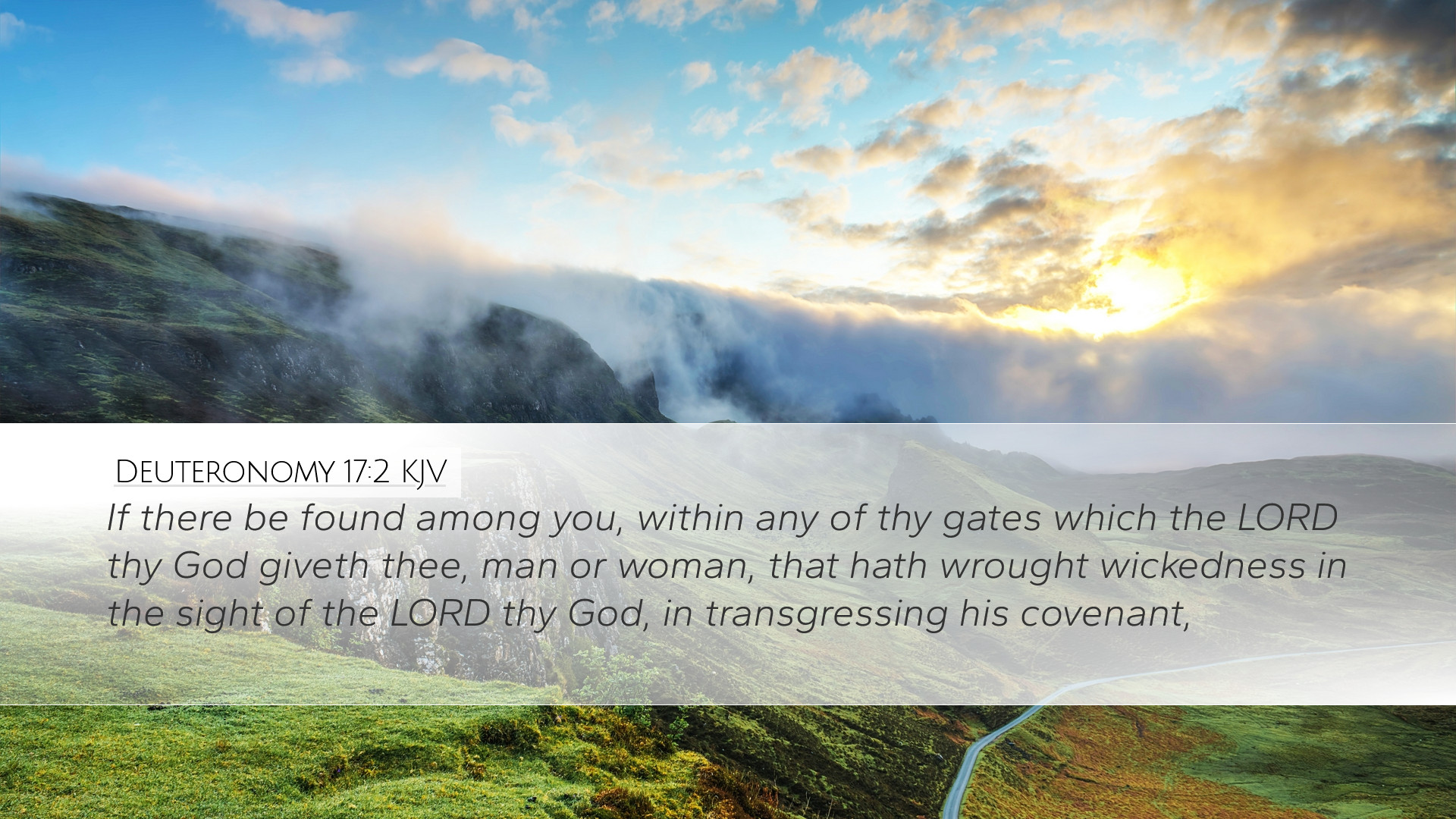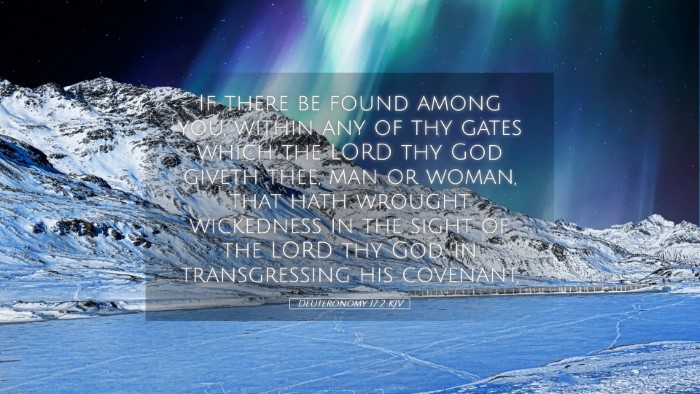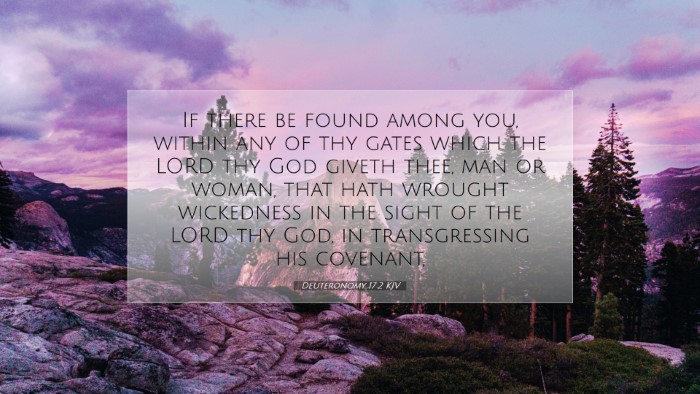Commentary on Deuteronomy 17:2
Verse: Deuteronomy 17:2 - "If there be found among you, within any of thy gates which the Lord thy God giveth thee, man or woman, that hath wrought wickedness in the sight of the Lord thy God, in transgressing his covenant."
Overview
This verse serves as an introduction to a significant legal stipulation that governs the behavior of the Israelites in the Promised Land. It sets the stage for discussing issues of idolatry and the consequences of turning away from God's commands. This commentary synthesizes insights from classical public domain commentaries, providing a comprehensive perspective for deeper understanding.
Historical Context
The context of Deuteronomy is critical; it is Moses' address to the Israelites as they prepare to enter the Promised Land. The regulations outlined in this book are designed to establish a covenant community that honors God’s commands. This particular verse addresses the serious issue of idolatry and wrongful practices that threaten the community’s relationship with God.
Theological Significance
The verse highlights several important theological themes:
- Divine Sovereignty: The reference to "gates" signifies that all aspects of community life fall under the Lord’s dominion.
- Holiness and Justice: The call to address wickedness reflects God’s demand for holiness among His people.
- Covenant Relationship: The actions described as transgressing the covenant emphasize accountability within this sacred relationship.
Insights from Commentaries
Matthew Henry's Commentary
Henry emphasizes the gravity of "wickedness" in the community, stating that identification and prosecution of sin are necessary to maintain the community’s integrity. He explains that this admonition was vital in establishing a society grounded in fidelity to God. Henry also notes that both men and women are included in this warning, reflecting the communal responsibility to uphold God's laws.
Albert Barnes' Notes on the Bible
Barnes specifically examines the societal implications of allowing wickedness to persist. He argues that the engagement in such behaviors undermines the nation’s stability and denies God's blessings. He points out that the text underscores prohibition against idolatry, a recurring theme in the Old Testament narrative. Barnes sees this as an urgent call for discernment among the people to root out sin in all forms.
Adam Clarke's Commentary
Clarke provides a thorough exploration of the terms "wickedness" and "transgressing his covenant," suggesting these are not mere offenses but deep spiritual failures. He further elaborates that the phrase indicates a deliberate and rebellious act against God's will. Clarke also highlights the emotional and spiritual impact such actions can have on the community and emphasizes the need for swift justice as a deterrent.
Practical Applications
There are several contemporary applications of this scripture for leaders and congregations:
- Community Accountability: Encouraging mutual accountability among church members can help maintain spiritual integrity.
- Education on Idolatry: Teaching about recognizing modern forms of idolatry can help believers hold fast to their commitments to God.
- Restoration and Justice: The text calls leaders to act justly but also compassionately, offering paths to restoration for those who repent.
Conclusion
Deuteronomy 17:2 is not merely a historical legal provision; it resonates with profound moral and spiritual truths applicable to the church today. The insights drawn from notable public domain commentaries enrich our understanding of the text and encourage a commitment to holiness in community life. Both individually and corporately, believers are called to uphold God's standards, seeking to embody the covenant relationship that He desires with His people.


